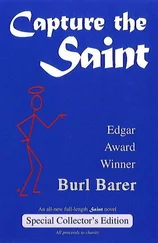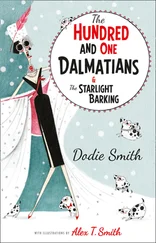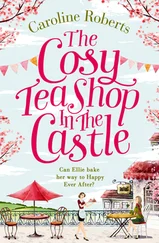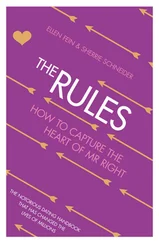Dodie Smith - I Capture the Castle
Здесь есть возможность читать онлайн «Dodie Smith - I Capture the Castle» весь текст электронной книги совершенно бесплатно (целиком полную версию без сокращений). В некоторых случаях можно слушать аудио, скачать через торрент в формате fb2 и присутствует краткое содержание. Жанр: Старинная литература, на русском языке. Описание произведения, (предисловие) а так же отзывы посетителей доступны на портале библиотеки ЛибКат.
- Название:I Capture the Castle
- Автор:
- Жанр:
- Год:неизвестен
- ISBN:нет данных
- Рейтинг книги:4 / 5. Голосов: 1
-
Избранное:Добавить в избранное
- Отзывы:
-
Ваша оценка:
- 80
- 1
- 2
- 3
- 4
- 5
I Capture the Castle: краткое содержание, описание и аннотация
Предлагаем к чтению аннотацию, описание, краткое содержание или предисловие (зависит от того, что написал сам автор книги «I Capture the Castle»). Если вы не нашли необходимую информацию о книге — напишите в комментариях, мы постараемся отыскать её.
I Capture the Castle — читать онлайн бесплатно полную книгу (весь текст) целиком
Ниже представлен текст книги, разбитый по страницам. Система сохранения места последней прочитанной страницы, позволяет с удобством читать онлайн бесплатно книгу «I Capture the Castle», без необходимости каждый раз заново искать на чём Вы остановились. Поставьте закладку, и сможете в любой момент перейти на страницу, на которой закончили чтение.
Интервал:
Закладка:
Dodie Smith
I CAPTURE THE CASTLE
I: THE SIXPENNY BOOK
I am sitting in the kitchen sink. That is, my feet are in it; the rest of me is on the draining-board, which I have padded with our dog's
blanket and the tea-cozy. I can't say that I am really comfortable,
and there is a depressing smell of carbolic soap, but this is the only part of the kitchen where there is any daylight left. And I have found that sitting in a place where you have never sat before can be
inspiring--I wrote my very best poem while sitting on the hen-house.
Though even that isn't a very good poem. I have decided my poetry is
so bad that I mustn't write any more of it.
Drips from the roof are plopping into the water-butt by the back door.
The view through the windows above the sink is excessively dreary.
Beyond the dank garden in the courtyard are the ruined walls on the
edge of the moat. Beyond the moat, the boggy ploughed fields stretch
to the leaden sky. I tell myself that all the rain we have had lately is good for nature, and that at any moment spring will surge on us. I try to see leaves on the trees and the courtyard filled with sunlight.
Unfortunately, the more my mind's eye sees green and gold, the more
drained of all color does the twilight seem.
It is comforting to look away from the windows and towards the kitchen fire, near which my sister Rose is ironing, though she obviously can't see properly, and it will be a pity if she scorches her only nightgown.
(I have two, but one is minus its behind.) Rose looks particularly
fetching by firelight because she is a pinkish person; her skin has a pink glow and her hair is pinkish gold, very light and feathery.
Although I am rather used to her I know she is a beauty. She is nearly twenty-one and very bitter with life. I am seventeen, look younger,
feel older. I am no beauty but have a nea tish face.
I have just remarked to Rose that our situation is really rather
romantic--two girls in this strange and lonely house. She replied that she saw nothing romantic about being shut up in a crumbling ruin
surrounded by a sea of mud. I must admit that our home is an
unreasonable place to live in. Yet I love it. The house itself was
built in the time of Charles II, but it was grafted on to a
fourteenth-century castle that had been damaged by Cromwell. The whole of our east wall was part of the castle; there are two round towers in it. The gatehouse is intact and a stretch of the old walls at their
full height joins it to the house. And Belmotte Tower, all that
remains of an even older castle, still stands on its mound close by.
But I won't attempt to describe our peculiar home fully until I can see more time ahead of me than I do now.
I am writing this journal partly to practice my newly acquired
speed-writing and partly to teach myself how to write a novel-I intend to capture all our characters and put in conversations. It ought to be good for my style to dash along without much thought, as up to now my stories have been very stiff and self-conscious. The only time Father obliged me by reading one of them, he said I combined stateliness with a desperate effort to be funny. He told me to relax and let the words flow out of me.
I wish I knew of a way to make words flow out of Father. Years and
years ago, he wrote a very unusual book called Jacob Wrestling, a
mixture of fiction, philosophy and poetry. It had a great success,
particularly in America, where he made a lot of money by lecturing on it, and he seemed likely to become a very important writer indeed. But he stopped writing. Mother believed this was due to something that
happened when I was about five.
We were living in a small house by the sea at the time. Father had
just joined us after his second American lecture tour. One afternoon
when we were having tea in the garden, he had the misfortune to lose
his temper with Mother very noisily just as he was about to cut a piece of cake. He brandished the cake-knife at her so menacingly that an
officious neighbor jumped the garden fence to intervene and got himself knocked down.
Father explained in court that killing a woman with our silver
cake-knife would be a long, weary business entailing sawing her to
death, and he was completely exonerated of any intention of slaying
Mother. The whole case seems to have been quite ludicrous, with
everyone but the neighbor being very funny. But Father made the
mistake of being funnier than the judge and, as there was no doubt
whatever that he had seriously damaged the neighbor, he was sent to
prison for three months.
When he came out he was as nice a man as ever-nicer, because his temper was so much better. Apart from that, he didn't seem to me to be
changed at all. But Rose remembers that he had already begun to get
unsociable--it was then that he took a forty years' lease of the
castle, which is an admirable place to be unsociable in. Once we were settled here he was supposed to begin a new book. But time went on
without anything happening and at last we realized that he had given up even trying to write--for years now, he has refused to discuss the
possibility. Most of his life is spent in the gatehouse room, which is icy cold in winter as there is no fireplace; he just huddles over an
oil-stove. As far as we know, he does nothing but read detective
novels from the village library. Miss Marcy, the librarian and
schoolmistress, brings them to him. She admires him greatly and says
"the iron has entered into his soul."
Personally, I can't see how the iron could get very far into a man's
soul during only three months in jail--anyway, not if the man had as
much vitality as Father had; and he seemed to have plenty of it left
when they let him out. But it has gone now; and his un sociability has grown almost into a disease-- I often think he would prefer not even to meet his own household. All his natural gaiety has vanished. At times he puts on a false cheerfulness that embarrasses me, but usually he is either morose or irritable- I think I should prefer it if he lost his temper as he used to. Oh, poor Father, he really is very pathetic. But he might at least do a little work in the garden. I am aware that this isn't a fair portrait of him. I must capture him later.
Mother died eight years ago, from perfectly natural causes. I think
she must have been a shadowy person, because I have only the vaguest
memory of her and I have an excellent memory for most things. (i can
remember the cake-knife incident perfectly- I hit the fallen neighbor with my little wooden spade. Father always said this got him an extra month.) Three years ago (or is it four his I know Father's one spasm of sociability was in 1931) a stepmother was presented to us. We were
surprised.
She is a famous artists' model who claims to have been christened
Topaz--even if this is true there is no law to make a woman stick to a name like that.
She is very beautiful, with masses of hair so fair that it is almost
white, and a quite extraordinary pallor. She uses no make-up, not even powder.
There are two paintings of her in the Tate Gallery: one by Macmorris, called "Topaz in Jade", in which she wears a magnificent jade necklace;
and one by H. J. Allardy which shows her nude on an old
horsehair-covered sofa that she says was very prickly. This is called
"Composition"; but as Allardy has painted her even paler than she is,
"Decomposition" would suit it better.
Actually, there is nothing unhealthy about Topaz's pallor; it simply
makes her look as if she belonged to some new race. She has a very
Читать дальшеИнтервал:
Закладка:
Похожие книги на «I Capture the Castle»
Представляем Вашему вниманию похожие книги на «I Capture the Castle» списком для выбора. Мы отобрали схожую по названию и смыслу литературу в надежде предоставить читателям больше вариантов отыскать новые, интересные, ещё непрочитанные произведения.
Обсуждение, отзывы о книге «I Capture the Castle» и просто собственные мнения читателей. Оставьте ваши комментарии, напишите, что Вы думаете о произведении, его смысле или главных героях. Укажите что конкретно понравилось, а что нет, и почему Вы так считаете.












